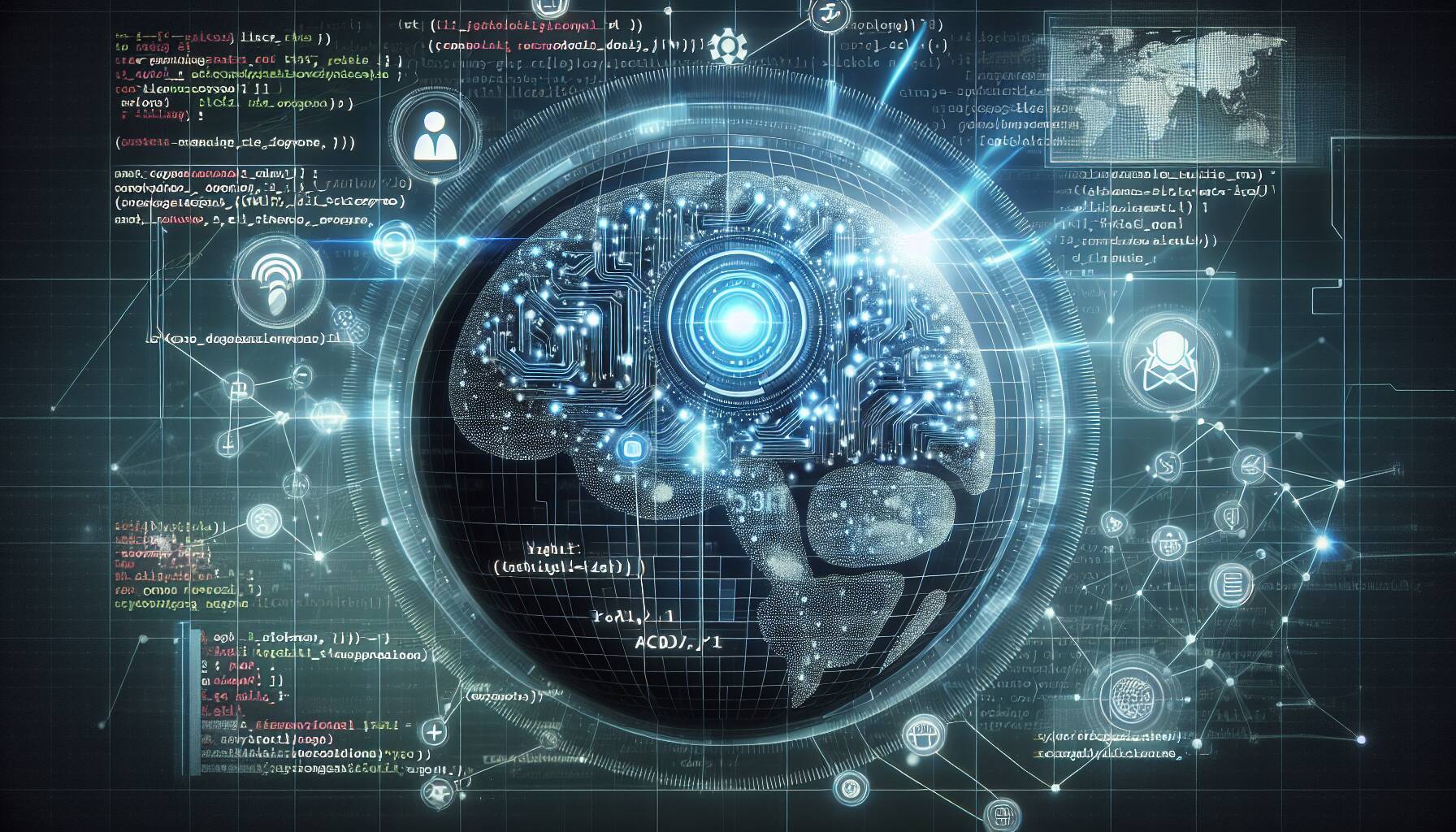The Internet Computer (ICP), a distinctive player in the blockchain space, is amplifying its emphasis on serving as the premier network for on-chain artificial intelligence (AI). Dominic Williams, the visionary founder of the Internet Computer developer Dfinity, suggests that we may be on the brink of a transformative tech evolution, characterized by AI assuming the role of the primary application developer, rather than human programmers. In a recent interview with CoinDesk, Williams noted that current cryptocurrency prices are primarily influenced by market behaviors, yet he believes the innovative technology behind the Internet Computer will eventually lead to a reevaluation of its market value.
“In the long run, markets begin to reflect realities on the ground,” said Williams.
The Internet Computer has already made strides in networking AI with its successful demonstration of neural networks capable of operating as smart contracts. This initiative began with fundamental applications, such as image classification, and has expanded into more advanced functionalities, including facial recognition. Unlike many competitors that depend on external platforms like Amazon Web Services, ICP aims to run the entire AI development process directly on the blockchain. This vision establishes what Williams refers to as a “self-writing internet,” wherein users can convey their wishes, and an AI materializes them as functioning applications hosted on the Internet Computer.
This ambitious framework could potentially redefine the blockchain’s role, positioning it not merely as a transactional layer but as an optimal habitat for AI-generated applications. Unique features of ICP, such as the “reverse gas” model, enable developers to cover the costs of application computations, circumventing the fees that typically burden end-users and smoothing out traditional infrastructure hurdles. Williams asserts that the speed of AI-driven development could outpace human capabilities significantly, emphasizing the necessity for robust blockchain-derived security measures.
“AI is developing these apps hundreds of times faster than humans could,” Williams remarked.
“This could be the first time Web3 actually outcompetes Web2 technologically, without a token incentive in sight,” Williams asserted.

The Internet Computer and On-Chain AI Revolution
Key points regarding the Internet Computer (ICP) and its potential impact on technology and users:
- Focus on On-Chain AI: The Internet Computer is positioning itself as a leading network for on-chain artificial intelligence development.
- Shift in Development Paradigm:
- AI may replace a significant portion of today’s developer workflows, allowing for rapid application development and updates.
- Developers will no longer need to extensively write code or manage servers, as AI can automate these processes.
- Self-Writing Internet: A vision where users interact with AI that generates applications based on their descriptions, hosted directly on ICP.
- Unique Blockchain Features:
- ICP’s “reverse gas” model allows developers to pay for computation instead of end users, simplifying the user experience.
- Blockchain’s inherent security features eliminate the need for traditional infrastructure concerns like firewalls or database migrations.
- Real-World Applications: Early hackathons showed non-experts creating diverse applications, indicating a wide potential impact on small businesses and entrepreneurs.
- Market Disconnect: Despite technological advancements, ICP’s token hasn’t reflected user adoption, indicating a possible future market correction.
“This could be the first time Web3 actually outcompetes Web2 technologically, without a token incentive in sight.” – Dominic Williams
Internet Computer’s On-Chain AI: A Game Changer or Overhyped Tool?
The Internet Computer (ICP) is steering its course towards becoming a leader in integrating artificial intelligence (AI) directly onto the blockchain, setting itself apart from its competitors in the crypto landscape. This ambitious approach, championed by Dfinity’s founder Dominic Williams, proposes not only a novel tech stack but a vision of a future where AI takes the helm of application development. Such a shift could signify a leap ahead of traditional platforms relying on off-chain infrastructures, like Amazon Web Services. While ICP’s stance offers exciting opportunities, it also presents inherent challenges that could influence its adoption.
In contrast, many blockchain networks dither with decentralized AI applications, relying largely on existing centralized infrastructures which can limit scalability and responsiveness. ICP’s integrated model, touted as creating a “self-writing internet,” presents marked advantages by maintaining operational and developmental functions within the blockchain. This could attract users keen on seamless functionality without the burdens of manual coding or infrastructure management.
Moreover, ICP’s innovative features such as the “reverse gas” model allow developers to engage without placing costs on end users, addressing one of the significant barriers seen in traditional deployment environments. This makes it an appealing option for entrepreneurs, small businesses, and nonprofits to generate innovative solutions without requiring technical prowess – something that is not as readily achievable with competitors sticking to off-chain solutions.
However, the disconnect between the excitement surrounding these technological innovations and ICP’s token performance raises serious concerns. ICP has seen nominal price spikes during announcements but fails to translate this enthusiasm into sustained momentum. The market’s lingering focus on broader trends rather than unique product adoption becomes a double-edged sword. On one hand, it indicates a potential for recovery and growth; on the other, it highlights vulnerabilities that could deter investment and engagement.
As the landscape evolves, ICP’s promise of empowering ordinary users through AI may resonate well with entrepreneurs and innovative thinkers looking to harness technology without extensive resources. Yet, the slow response from traditional investors and the general crypto market sentiment poses a threat to its reputation. If these hurdles remain, ICP risks falling prey to skepticism in a space already fraught with inflated promises and unmet expectations. Therefore, while the potential for ICP to aid various sectors is substantial, it may also inadvertently complicate the journey towards broader, sustainable adoption.
















